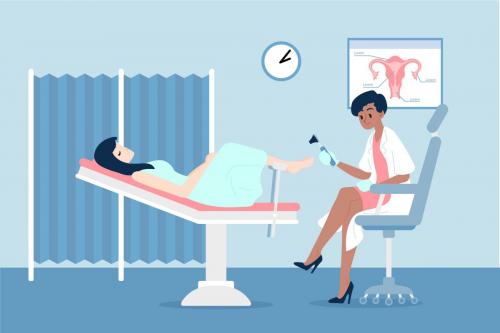How often should a woman be examined by an obstetrician-gynecologist and what should it include?

A woman of any age should be examined by a gynecologist once every 6-12 months, even in the absence of complaints. It is best to come to the doctor during the first days after menstruation, i.e. on days 5-9 of the menstrual cycle.
Minimum examination should include: examination by a doctor, smear analysis for microflora, showing how healthy the environment present in the vagina of a woman, oncocytological study from the cervix, which determines the degree of risk of cervical cancer.
This diagnosis, of course, does not give a complete picture of the health of the female genital tract, but it does show the condition of the cervix and vagina. This can serve as a starting point either for further diagnosis or for the prescription of treatment.
In addition to examination, women should undergo an ultrasound examination of the pelvic organs and breast ultrasound examination also from the 5th to the 9th day of the menstrual cycle.
At different times in a woman's life and in different situations Lab tests are also different. For example, 10 days after the beginning of sexual intercourse or the appearance of a new partner, it is necessary to get tested for microflora and sexually transmitted infections (smears and blood from a vein for syphilis, HIV, hepatitis), and after 40 years it is recommended to take blood for onomarkers of ovarian and breast cancer, and in the presence of a family history of genetic risk of breast cancer and blood coagulation system tests.
Thanks to this comprehensive ongoing "care" of her health, every woman has the opportunity to detect pathologies present in time, and to carry out timely treatment.
Should a pregnancy be planned?
In modern conditions, with an active rhythm of life, constant stress and the desire of many women to pursue a career, any pregnancy must necessarily be planned.
Due to the dynamic development of medicine, availability of a wide range of laboratory tests, high-class equipment, including ultrasound diagnostics, it is possible to conduct a comprehensive examination of the female body before pregnancy.
For example, the detection of TORCH infections (chlamydia, CMV, herpes infection) before pregnancy enables their treatment in the shortest possible time, and avoids subsequent adverse effects on the healthy development of the fetus. Hormonal examinations give an idea of the background of the pregnancy, and make it possible to correct it. Ultrasound diagnostics reveals possible abnormalities in the structure of female reproductive organs, presence of cysts, ovarian neoplasms which may also affect conception and normal course of pregnancy.
Research on genetic thrombophilia (in the presence of relatives with strokes or heart attacks before the age of 50, thrombosis, thrombophlebitis) will reduce the risk of pregnancy failure and such severe complications as gestosis, premature placental abruption.
By undergoing examination before pregnancy, a woman consciously prepares her body for this difficult and responsible process, and thus helps to avoid many troubles and serious problems during pregnancy.
Advertise on APSense
This advertising space is available.
Post Your Ad Here
Post Your Ad Here

Comments